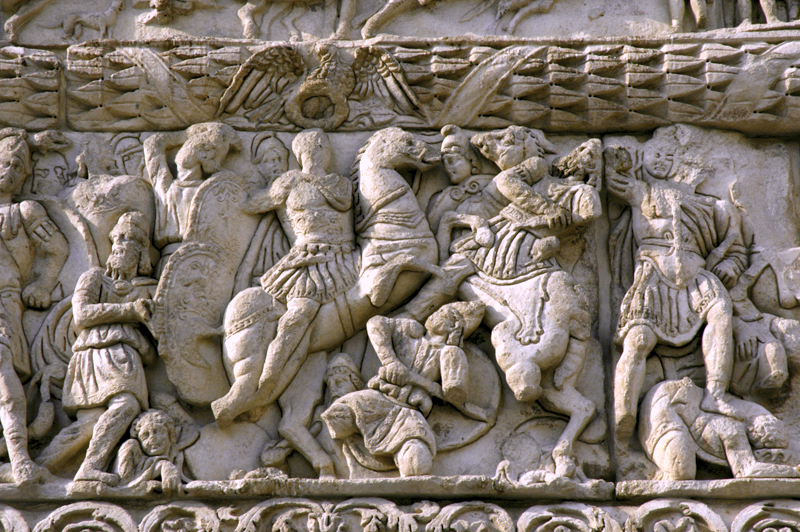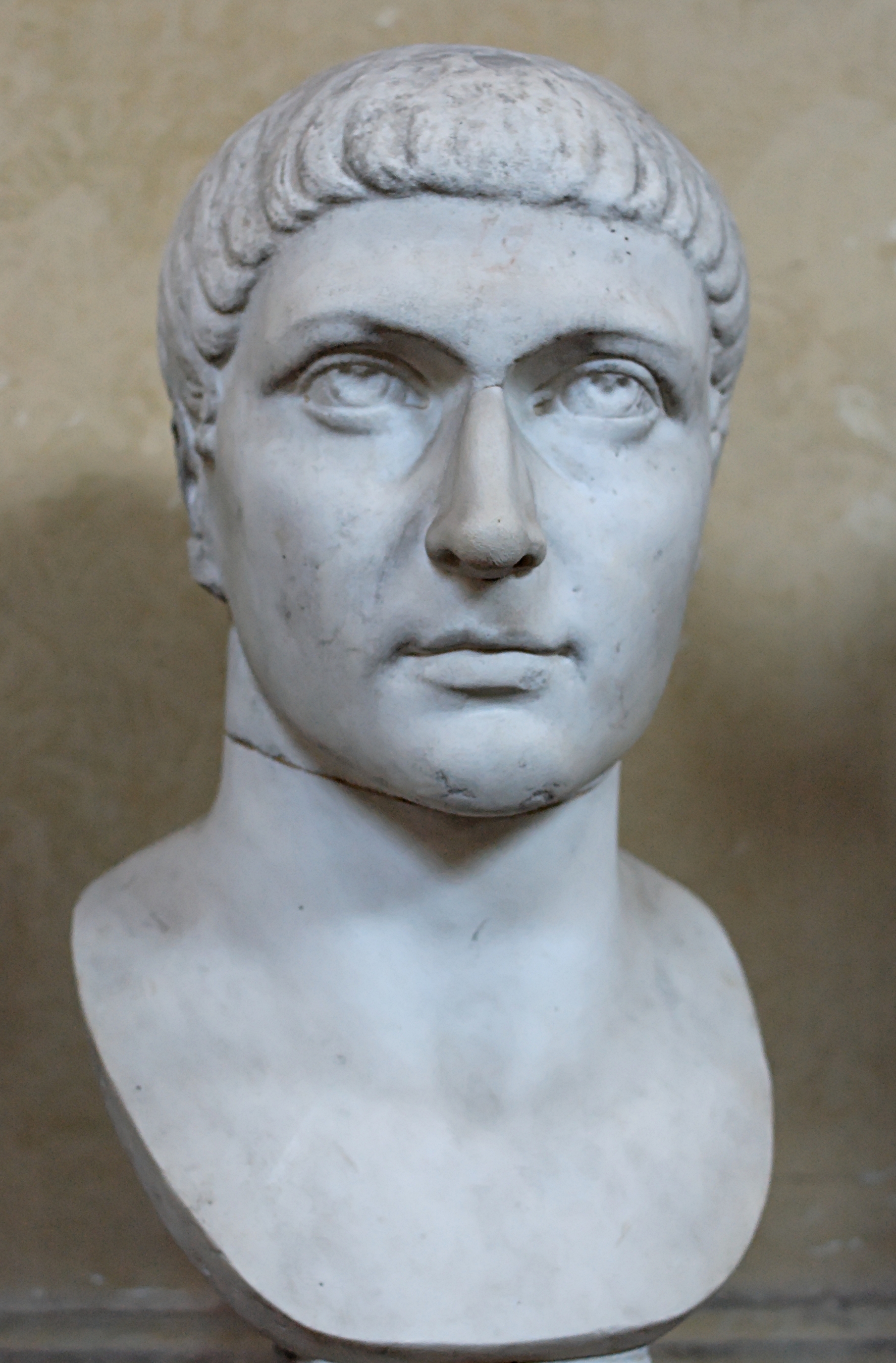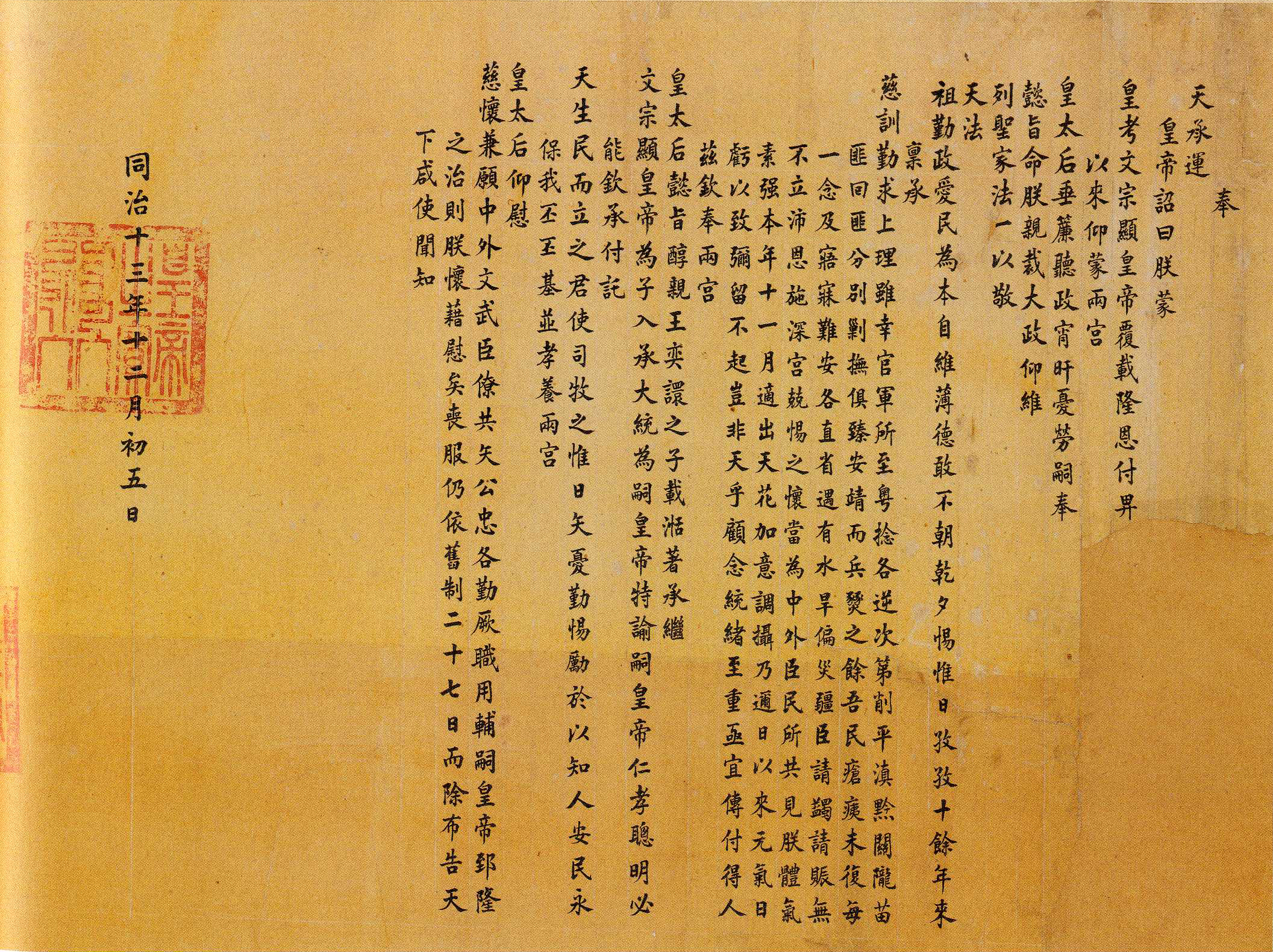|
Edict Of Serdica
The Edict of Serdica, also called Edict of Toleration by Galerius, was issued in 311 in Serdica (now Sofia, Bulgaria) by Roman Emperor Galerius. It officially ended the Diocletianic Persecution of Christianity in the Eastern Roman Empire. The Edict implicitly granted Christianity the status of '' religio licita'', a worship that was recognized and accepted by the Roman Empire. It was the first edict legalizing Christianity and preceded the Edict of Milan by two years. History On 23 February 303, on the Terminalia feast, Emperor Diocletian, on the proposal of Galerius, issued a persecutory edict. The edict prescribed: * Destroying churches and burning their Holy Scriptures * Confiscation of church property * Banning Christians from undertaking collective legal action * Loss of privileges for Christians of high rank who refused to recant * Arresting some state officials. In 305, Diocletian abdicated and was replaced by Galerius, his successor, who continued persecution i ... [...More Info...] [...Related Items...] OR: [Wikipedia] [Google] [Baidu] |
Galerius Edict Sofia Plaque 03
Galerius Valerius Maximianus (; Greek: Γαλέριος; 258 – May 311) was Roman emperor from 305 to 311. He participated in the system of government later known as the Tetrarchy, first acting as ''caesar'' under Emperor Diocletian. In this period Galerius obtained victory warring against the Persian Sassanian Empire, defeating Narseh at the battle of Satala in 298 and possibly sacking the Sassanian capital of Ctesiphon in 299. He also campaigned across the Danube against the Carpi, defeating them in 297 and 300. Galerius was promoted to ''augustus'' upon the abdication of Diocletian in 305, but had to contend with multiple usurpers as the Tetrarchic system broke down. Although he was a staunch opponent of Christianity, he ended the Diocletianic Persecution by issuing the Edict of Serdica in 311. Early life Galerius was born in the Danube provinces, either near Serdica or at the place where he later built his palace named after his mother – Felix Romuliana (Gamzigrad) ... [...More Info...] [...Related Items...] OR: [Wikipedia] [Google] [Baidu] |
Edict Of Milan
The Edict of Milan (; , ''Diatagma tōn Mediolanōn'') was the February 313 agreement to treat Christians benevolently within the Roman Empire. Frend, W. H. C. (1965). ''The Early Church''. SPCK, p. 137. Western Roman Emperor Constantine I and Emperor Licinius, who controlled the Balkans, met in Mediolanum (modern-day Milan) and, among other things, agreed to change policies towards Christians following the edict of toleration issued by Emperor Galerius two years earlier in Serdica. The Edict of Milan gave Christianity legal status and a reprieve from persecution but did not make it the state church of the Roman Empire, ''The Cambridge History of Christianity''. Cambridge University PressQuote "Christianity did not become the official religion of the empire under Constantine, as is often mistakenly claimed..." which occurred in AD 380 with the Edict of Thessalonica,Encyclopedia Britannica"Christianity: The Alliance Between Church and Empire" Quote: "...Emperor Theodosius I (r ... [...More Info...] [...Related Items...] OR: [Wikipedia] [Google] [Baidu] |
Edicts Of Toleration
An edict is a decree or announcement of a law, often associated with monarchies, but it can be under any official authority. Synonyms include "dictum" and "pronouncement". ''Edict'' derives from the Latin edictum. Notable edicts * Telepinu Proclamation, by Telipinu, king of the Hittites. Written c. 1550 BC, it helped archeologists to construct a succession of Hittite Kings. It also recounts Mursili I's conquest of Babylon. * Edicts of Ashoka, by the Mauryan emperor, Ashoka, during his reign from 272 BC to 231 BC. * Reform of Roman Calendar, Julian Calendar, took effect on 1 January AUC 709 (45 BC). * Edictum perpetuum (129), an Imperial revision of the long-standing Praetor's Edict, a periodic document which first began under the late Roman Republic (c. 509–44 BC). * Edict on Maximum Prices (301), by Roman Emperor Diocletian. It attempted to reform the Roman system of taxation and to stabilize the coinage. * Edict of Toleration (311), by Galerius before hi ... [...More Info...] [...Related Items...] OR: [Wikipedia] [Google] [Baidu] |
Constantinian Dynasty
The Constantinian dynasty is an informal name for the ruling family of the Roman Empire from Constantius Chlorus (died 306) to the death of Julian in 363. It is named after its most famous member, Constantine the Great, who became the sole ruler of the empire in 324. The dynasty is also called Neo-Flavian because every Constantinian emperor bore the name Flavius, similarly to the rulers of the first Flavian dynasty in the 1st century. Stemmata In ''italics'' the ''augusti'' and the ''augustae''. * '' Constantius I'' *# From relationship between ''Constantius I'' and '' Helena'' *#* ''Constantine I'' *#*# From marriage between ''Constantine I'' and ''Minervina'' *#*#* Crispus *#*# From marriage between ''Constantine I'' and ''Fausta'' *#*#* ''Constantina'', wife of Hannibalianus and Constantius Gallus *#*#* '' Constantine II'' *#*#* ''Constantius II'' *#*#*#No offspring from marriage between ''Constantius II'' and his first wife, daughter of Julius Constantius *#*#*#No offsp ... [...More Info...] [...Related Items...] OR: [Wikipedia] [Google] [Baidu] |
4th-century Christianity
The 4th century was the time period from 301 CE (represented by the Roman numerals CCCI) to 400 CE (CD) in accordance with the Julian calendar. In the West, the early part of the century was shaped by Constantine the Great, who became the Constantine the Great and Christianity, first Roman emperor to adopt Christianity. Gaining sole reign of the empire, he is also noted for re-establishing a single imperial capital, choosing the site of ancient Byzantium in 330 (over the current capitals, which had effectively been changed by Diocletian's reforms to Milan in the West, and Nicomedia, Nicomedeia in the East) to build the city soon called Nova Roma (New Rome); it was later renamed Constantinople in his honor. The last emperor to control both the eastern and western halves of the empire was Theodosius I. As the century progressed after his death, it became increasingly apparent that the empire had changed in many ways since the time of Augustus. The two-emperor system originally esta ... [...More Info...] [...Related Items...] OR: [Wikipedia] [Google] [Baidu] |
4th Century In Law , or The Fourth of July
{{Disambiguation ...
Fourth or the fourth may refer to: * the ordinal form of the number 4 * ''Fourth'' (album), by Soft Machine, 1971 * Fourth (angle), an ancient astronomical subdivision * Fourth (music), a musical interval * ''The Fourth'', a 1972 Soviet drama See also * * * 1/4 (other) * 4 (other) * The fourth part of the world (other) * Forth (other) * Quarter (other) * Independence Day (United States) Independence Day, known colloquially as the Fourth of July, is a federal holiday in the United States which commemorates the ratification of the Declaration of Independence by the Second Continental Congress on July 4, 1776, establishing ... [...More Info...] [...Related Items...] OR: [Wikipedia] [Google] [Baidu] |
310s In The Roman Empire
31 may refer to: * 31 (number) Years * 31 BC * AD 31 * 1931 * 2031 Music * ''Thirty One'' (Jana Kramer album), 2015 * ''Thirty One'' (Jarryd James album), 2015 * "Thirty One", a song by Karma to Burn from the album ''Wild, Wonderful Purgatory'', 1999 Science * Gallium, a post-transition metal in the periodic table * 31 Euphrosyne, an asteroid in the asteroid belt * (31) Euphrosyne I, a satellite of 31 Euphrosyne Film and television * ''31'' (film), a 2016 horror film * 31 (Kazakhstan), a television channel * 31 Digital, an Australian video on demand service Transportation * 31st (CTA station), a rapid transit station in Chicago * 31 (MBTA bus), a bus route in Boston, Massachusetts * 31 (RIPTA), a bus route in Rhode Island Other uses * Thirty-one (card game) * Baskin-Robbins, a U.S. international ice cream parlor chain with the slogan, "31 flavors" * The international calling code for the Netherlands See also * * * * * Channel 31 (other) Channel 31 refers ... [...More Info...] [...Related Items...] OR: [Wikipedia] [Google] [Baidu] |
Tetrarchy
The Tetrarchy was the system instituted by Roman emperor Diocletian in 293 AD to govern the ancient Roman Empire by dividing it between two emperors, the ''augusti'', and their junior colleagues and designated successors, the ''caesares''. Initially Diocletian chose Maximian as his ''caesar'' in 285, raising him to co-''augustus'' the following year; Maximian was to govern the western provinces and Diocletian would administer the eastern ones. The role of the ''augustus'' was likened to Jupiter (mythology), Jupiter, while his ''caesar'' was akin to Jupiter's son Hercules. Galerius and Constantius Chlorus, Constantius were appointed ''caesares'' in March 293. Diocletian and Maximian retired on 1 May 305, raising Galerius and Constantius to the rank of ''augustus''. Their places as ''caesares'' were in turn taken by Valerius Severus and Maximinus Daza. The orderly system of two senior and two junior rulers endured until Constantius died in July 306, and his son Constantine the ... [...More Info...] [...Related Items...] OR: [Wikipedia] [Google] [Baidu] |
Holy Scriptures
Religious texts, including scripture, are texts which various religions consider to be of central importance to their religious tradition. They often feature a compilation or discussion of beliefs, ritual practices, moral commandments and laws, ethical conduct, spiritual aspirations, and admonitions for fostering a religious community. Within each religion, these texts are revered as authoritative sources of guidance, wisdom, and divine revelation. They are often regarded as sacred or holy, representing the core teachings and principles that their followers strive to uphold. Etymology and nomenclature According to Peter Beal, the term ''scripture'' – derived from (Latin) – meant "writings anuscriptsin general" prior to the medieval era, and was then "reserved to denote the texts of the Old and New Testaments of the Bible". Beyond Christianity, according to the ''Oxford World Encyclopedia'', the term ''scripture'' has referred to a text accepted to contain the "sacred ... [...More Info...] [...Related Items...] OR: [Wikipedia] [Google] [Baidu] |
Edict
An edict is a decree or announcement of a law, often associated with monarchies, but it can be under any official authority. Synonyms include "dictum" and "pronouncement". ''Edict'' derives from the Latin edictum. Notable edicts * Telepinu Proclamation, by Telipinu, king of the Hittites. Written c. 1550 BC, it helped archeologists to construct a succession of Hittite Kings. It also recounts Mursili I's conquest of Babylon. * Edicts of Ashoka, by the Mauryan emperor, Ashoka, during his reign from 272 BC to 231 BC. * Reform of Roman Calendar, Julian Calendar, took effect on 1 January AUC 709 (45 BC). * Edictum perpetuum (129), an Imperial revision of the long-standing Praetor's Edict, a periodic document which first began under the late Roman Republic (c. 509–44 BC). * Edict on Maximum Prices (301), by Roman Emperor Diocletian. It attempted to reform the Roman system of taxation and to stabilize the coinage. * Edict of Toleration (311), by Galerius before hi ... [...More Info...] [...Related Items...] OR: [Wikipedia] [Google] [Baidu] |
Diocletian
Diocletian ( ; ; ; 242/245 – 311/312), nicknamed Jovius, was Roman emperor from 284 until his abdication in 305. He was born Diocles to a family of low status in the Roman province of Dalmatia (Roman province), Dalmatia. As with other Illyrian emperors, Illyrian soldiers of the period, Diocles rose through the ranks of the military early in his career, serving under Aurelian and Probus (emperor), Probus, and eventually becoming a Roman cavalry, cavalry commander for the army of Emperor Carus. After the deaths of Carus and his son Numerian on a campaign in Sasanian Empire, Persia, Diocles was proclaimed emperor by the troops, taking the name "Diocletianus". The title was also claimed by Carus's surviving son, Carinus, but he was defeated by Diocletian in the Battle of the Margus. Diocletian's reign stabilized the empire and ended the Crisis of the Third Century. He initiated the process of the Roman Empire split and appointed fellow officer Maximian as ''Augustus (title), Augu ... [...More Info...] [...Related Items...] OR: [Wikipedia] [Google] [Baidu] |
Terminalia (festival)
Terminalia () was an ancient Roman festival in honour of the god Terminus, who presided over boundaries. His statue was merely a stone or post stuck in the ground to distinguish between properties. His worship is said to have been instituted by Numa who ordered that every one should mark the boundaries of his landed property by stones to be consecrated to Jupiter Terminalis, and at which every year sacrifices were to be offered at the festival of the Terminalia. On the festival the two owners of adjacent property crowned the statue with garlands and raised a crude altar, on which they offered up some corn, honeycombs, and wine, and sacrificed a lamb or a suckling pig. They concluded with singing the praises of the god. The public festival in honour of this god was celebrated at the sixth milestone on the road towards Laurentum doubtless because this was originally the extent of the Roman territory in that direction. The festival of the Terminalia was celebrated VII. ''Kal. M ... [...More Info...] [...Related Items...] OR: [Wikipedia] [Google] [Baidu] |






